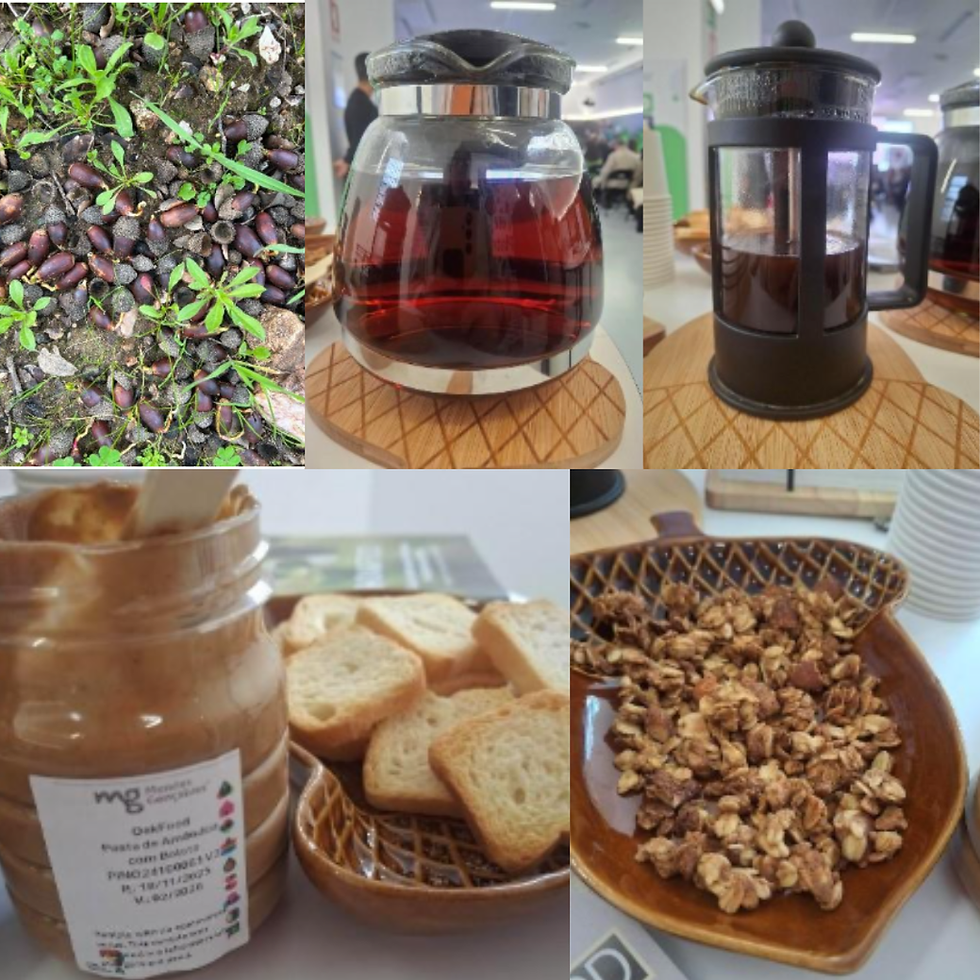The acorn and sustainability: environmental impact and regenerative farming practices
- OakFood

- Oct 31, 2025
- 2 min read
Updated: Nov 3, 2025

The acorn, the fruit of native Portuguese trees such as the holm oak and the cork oak, was for centuries a staple food in the Mediterranean diet and in animal feed (PINTO-CORREIA, 2013). Today, it is once again being valued for its nutritional potential and for the role it can play in an ecological and regenerative farming model (SERRANO, 2018). Rich in fiber, antioxidants, and complex carbohydrates, the acorn represents a sustainable alternative to intensive crops, requiring little water and no chemical fertilizers (SILVA et al., 2020).
The Portuguese montado landscapes, where these trees dominate, are considered biodiversity hotspots and play a crucial role in carbon sequestration and desertification prevention (ICNF, 2021). These agroforestry systems combine agricultural production with environmental conservation, promoting a balance between rural economy and ecological resilience (PINTO-CORREIA et al., 2019).
The collection and processing of acorns into products such as flour, acorn coffee, or sustainable snacks are linked to regenerative agricultural practices. These include controlled grazing, maintaining soil cover, and natural tree regeneration—techniques that improve soil fertility and increase water retention (SERRANO, 2018).
By reintroducing the acorn into food systems and local markets, Portugal revives an ancestral tradition with high environmental and economic value, fostering food autonomy and the sustainability of rural territories (SILVA et al., 2020).
References
ICNF – Instituto da Conservação da Natureza e das Florestas. Relatório do Estado do Montado em Portugal. Lisbon, 2021.
Pinto-Correia, T. O Montado: Património, Paisagem e Sustentabilidade. University of Évora, 2013.
Pinto-Correia, T.; Godinho, S. Gestão do Montado e Serviços de Ecossistema. Revista de Ciências Agrárias, 42(2), 45–58, 2019.
Serrano, A. Valorização Alimentar da Bolota na Dieta Mediterrânica. University of Algarve, 2018.
Silva, M.; Correia, R. A bolota como recurso agro-alimentar sustentável em Portugal. Revista Agroecologia Hoje, 5(1), 22–30, 2020.




Comments